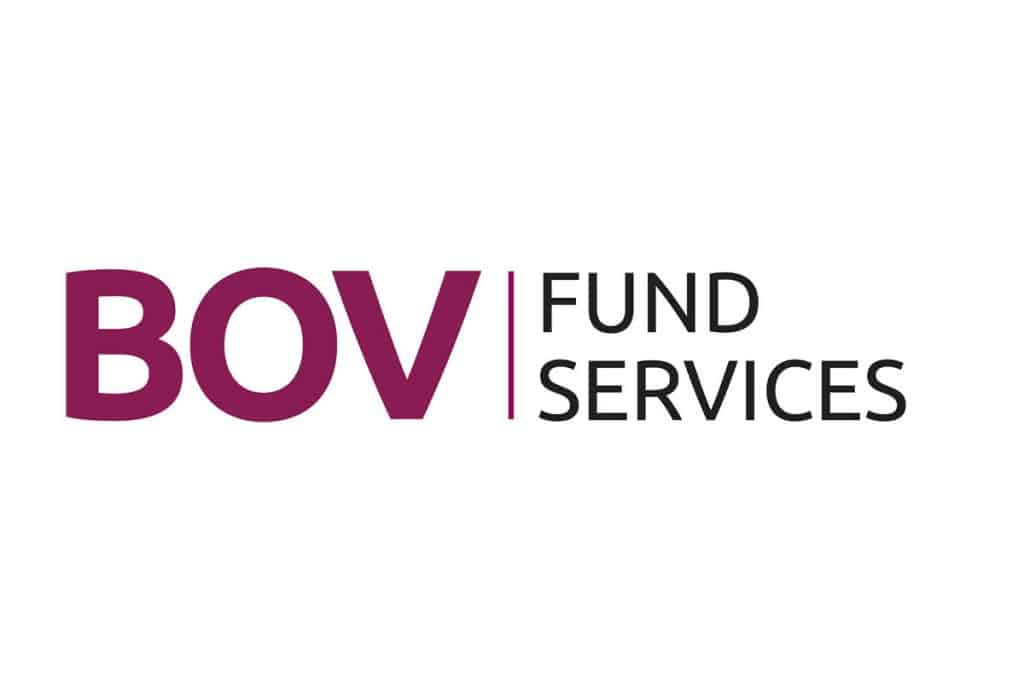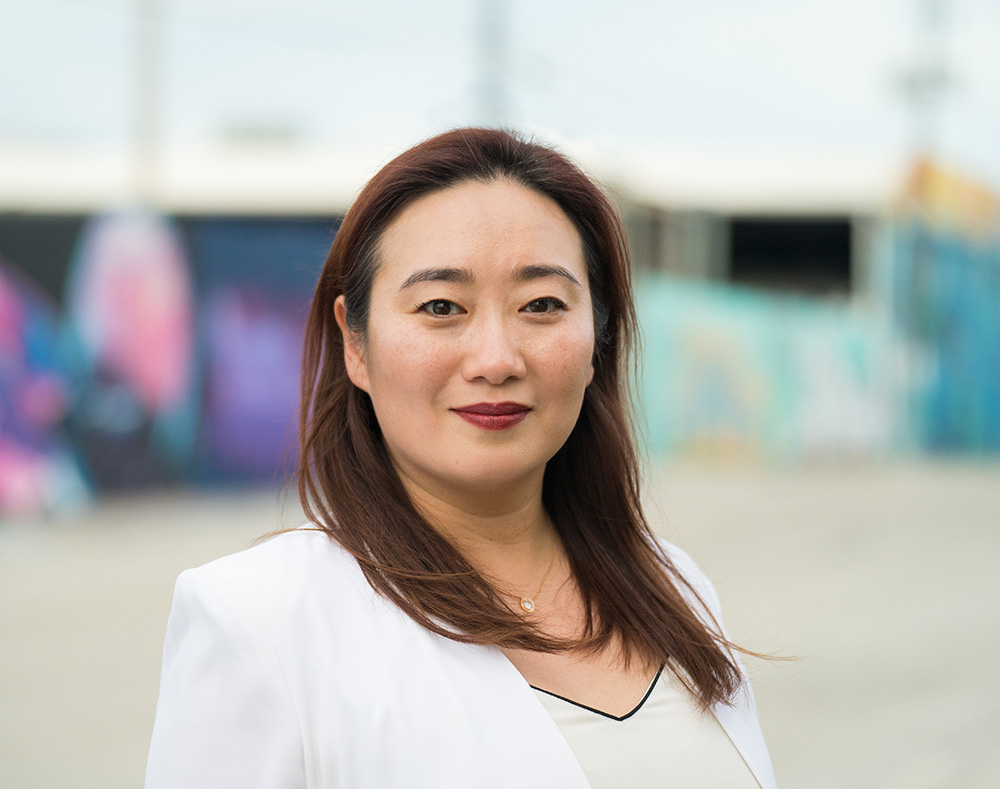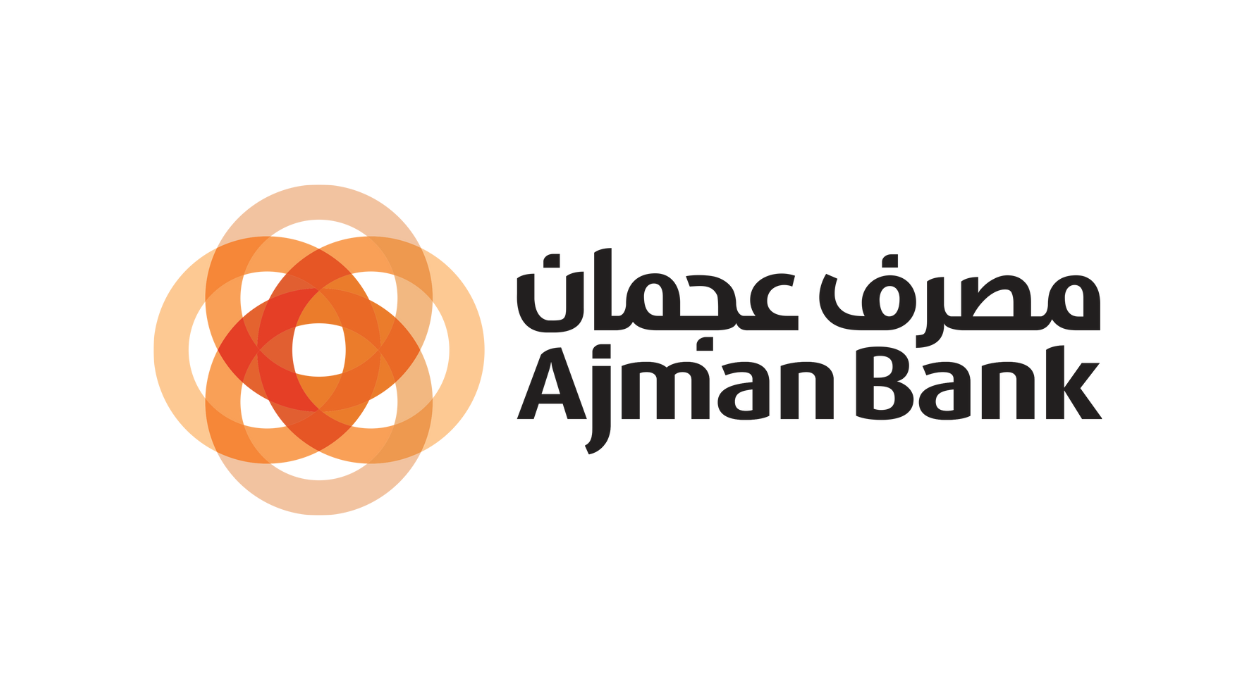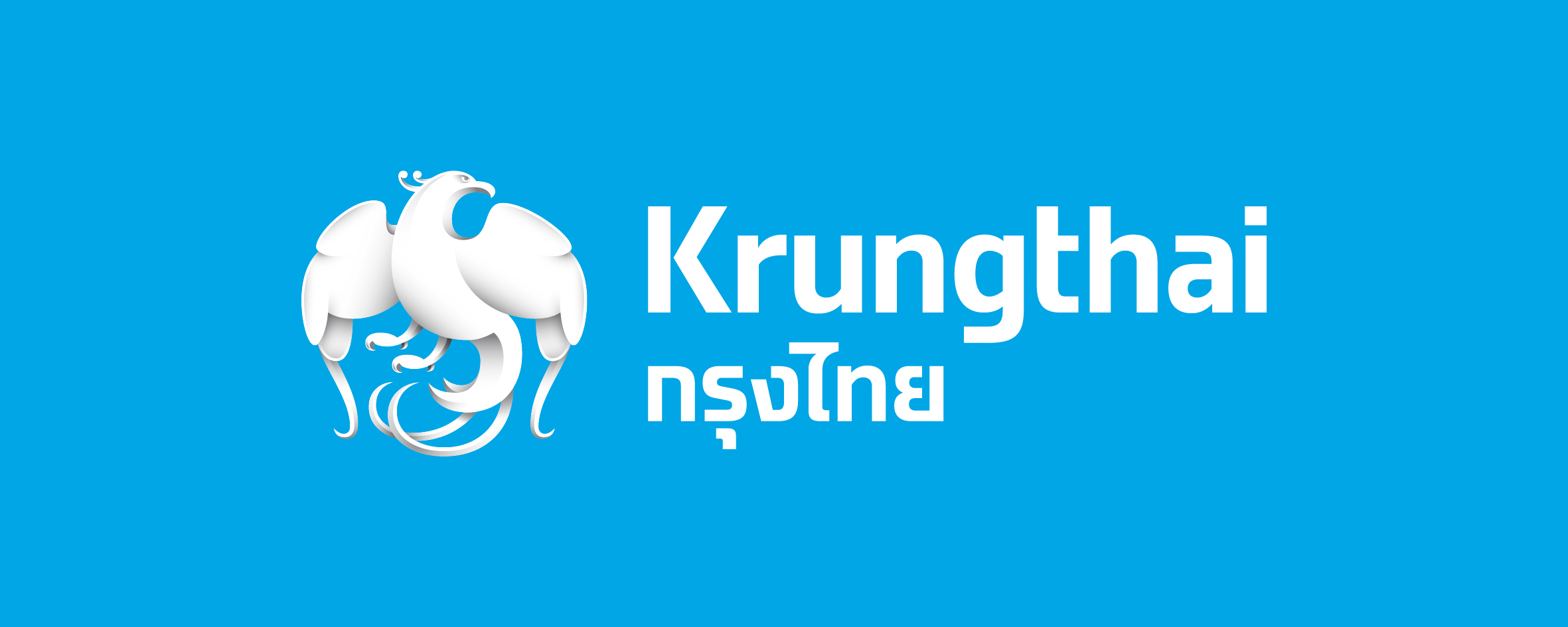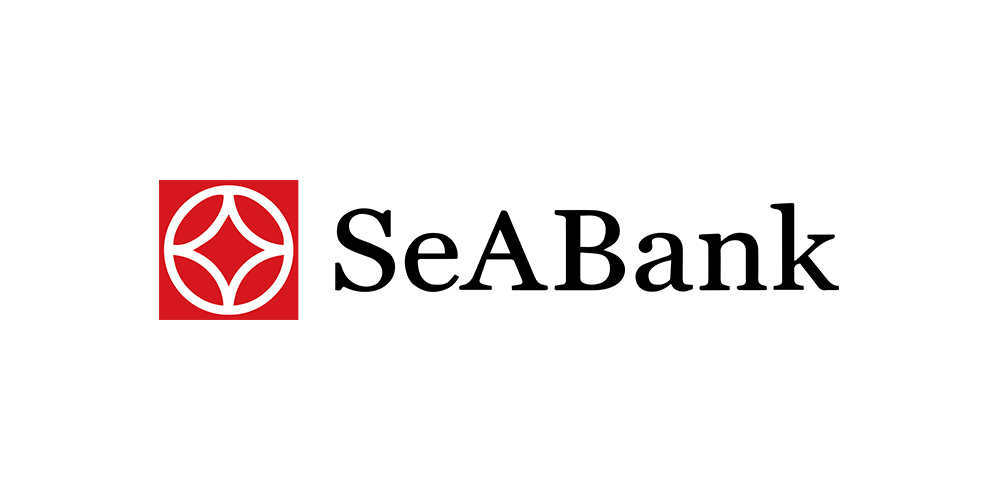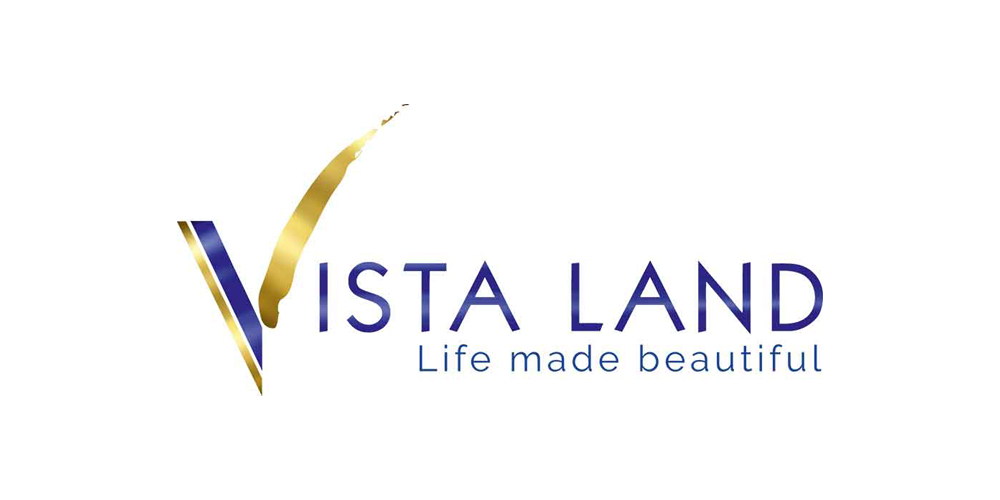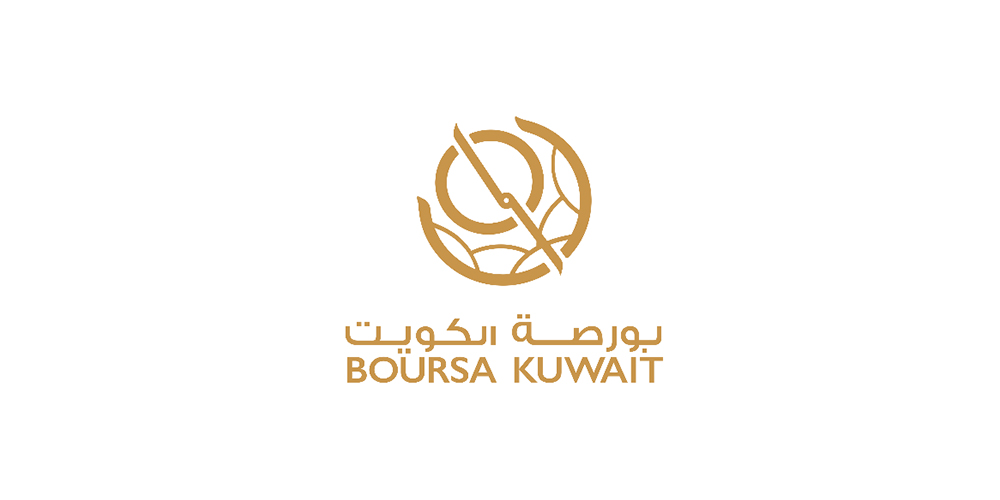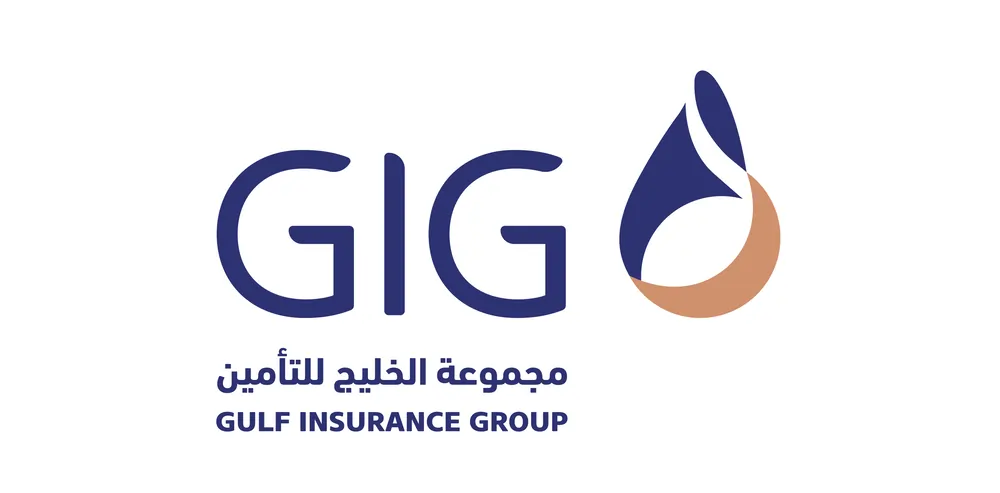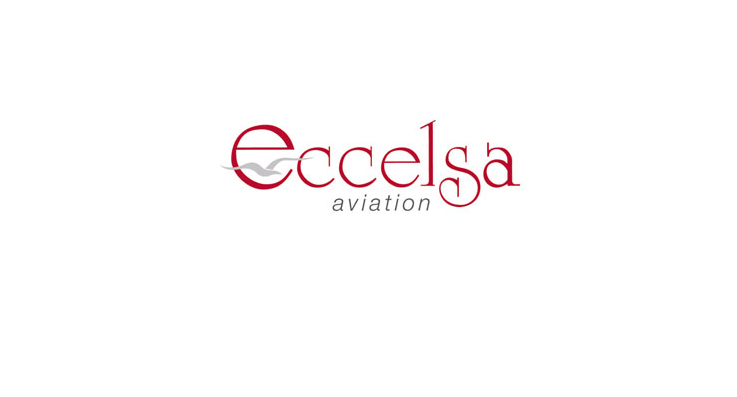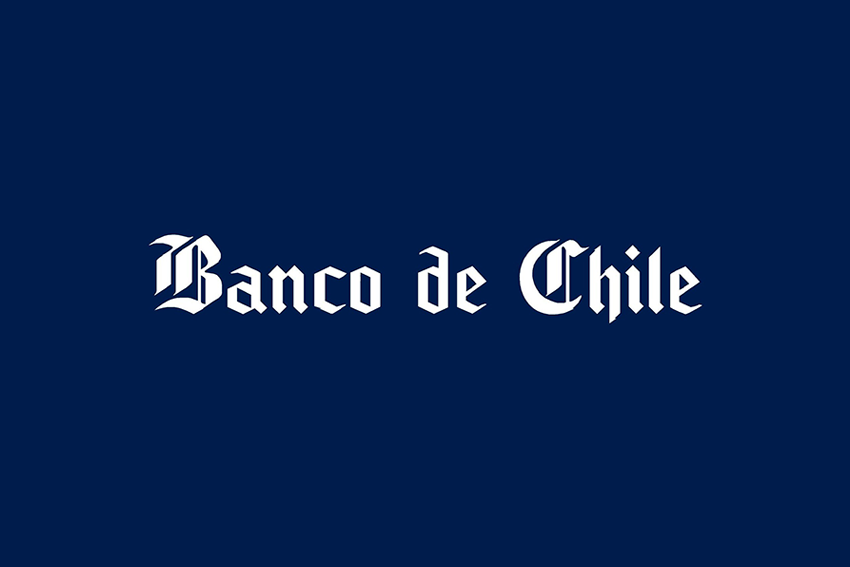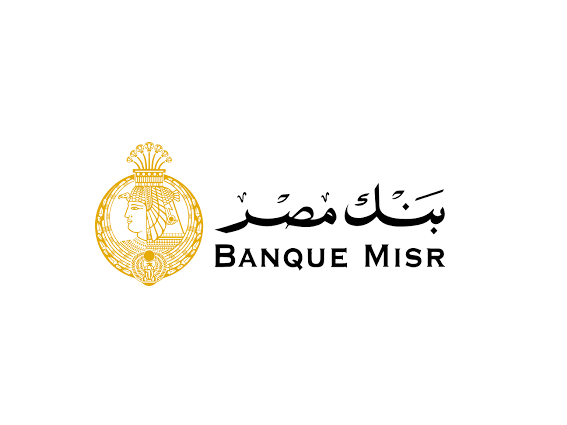The British doctor on a mission to kill cancer kindly

John E. Kaye
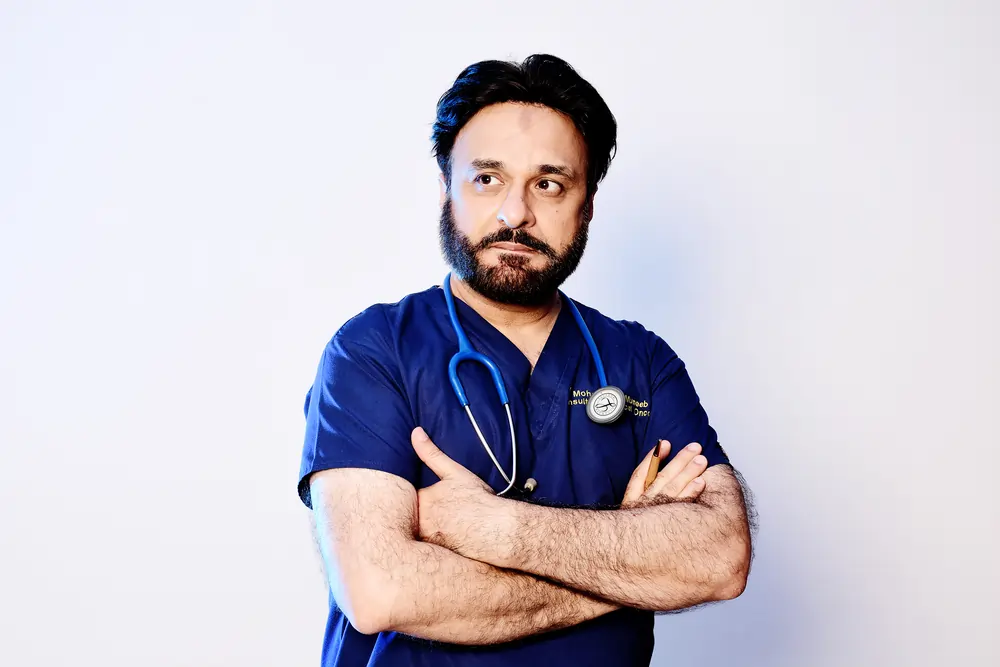
International charity Killing Cancer Kindly is leading the fight to bring cancer rates down around the world. We speak to its founder, Dr Mohammad Muneeb Khan
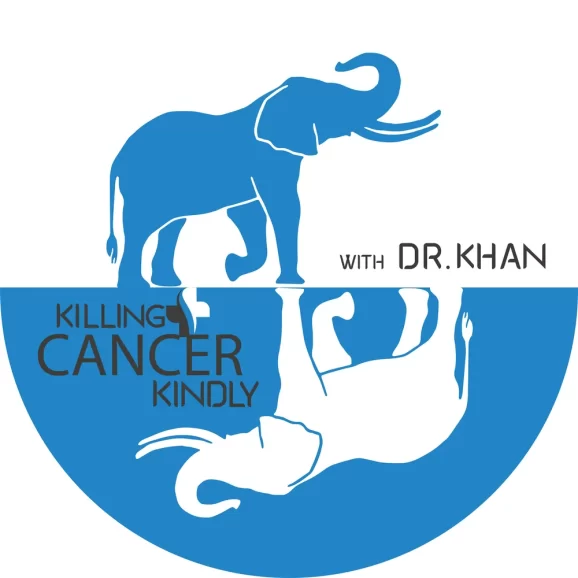
When asked why he has dedicated his life to undoubtedly one of the most lofty and monumental of medical ambitions — beating cancer — Dr Mohammad Muneeb Khan cites the great mountaineer Sir Edmund Hillary.
Upon conquering Mount Everest back in 1953, Hillary, responding to a similar question, famously answered, “Because it was there”.
Dr Khan shares that same philosophy, describing cancer as the “Mount Everest of human health”, and one that he, through his books and international educational charity Killing Cancer Kindly, is confident of eventually scaling.
This, he fully recognises, is not a short-term project but one that could take decades, and even generations, to fulfil. Even so, he firmly believes that the prospect of a cancer-free life is attainable.
“Cancer stands tall above all other illnesses, with the dreaded ‘C’ word striking fear into people’s hearts,” he says.
“It’s understandable why, then, there is a great reluctance among the public to think about the disease unless they have to, but this works to our detriment.
“My message is simple, exciting, and fully backed by the latest scientific knowledge: there is much that we can do to beat cancer, or avoid it all together, during our lifetimes if only we know how.”
A distinguished clinical oncologist working in NHS England with 25 years of clinical experience, Dr Khan’s drive to become a cancer crusader goes all the way back to his youth.
Born in the UK but raised in his family’s home country of Pakistan, he had already decided by the age of five that he would become a doctor, being inspired by his uncle, a celebrated expert on tuberculosis who ran the country’s largest TB treatment centre, situated near the city of Mansehra.
His first encounter with cancer came at the age of 15 when a close family friend was diagnosed with the disease in her mid-thirties.
“I was not allowed to visit her,” he says, “despite her being one of my favourite aunts. The experience intrigued me enough to develop a keen interest in understanding what had happened to her.
“So, I devoted my teenage years and, subsequently, my time at medical school in pursuit of getting to grips with the science and art of oncology.”
Upon graduating from Peshawar University, Pakistan, with his medical degree — during which time he received the coveted Dr Attique Memorial Shield for the Best Undergraduate Medical Research Award — Dr Khan began specialising in the field on cancer, undertaking an Membership of The Royal College of Physicians (MRCP) from London, MSc in Clinical Oncology, at Birmingham University and a Fellowship of The Royal College of Radiologists (FRCR Clinical Oncology) from London, while working as a junior doctor in the UK.
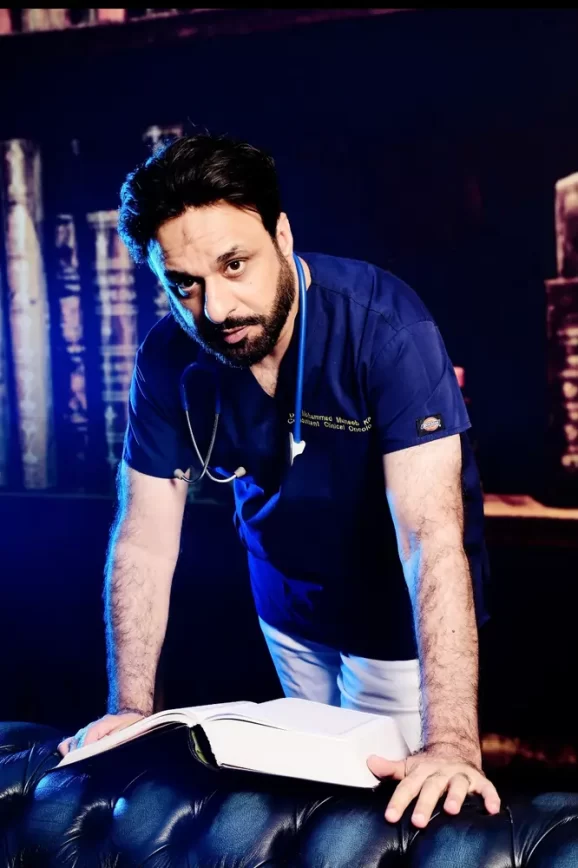
Dr Mohammad Muneeb Khan replaces fear and misunderstanding with the knowledge, tools and hope to avoid and overcome cancer
He says that since the beginning of his medical career, helping thousands of patients young and old receive the best treatment and care, he has never failed to be “touched by the courage, resilience, and dignity of those who face cancer”.
He has, however, also observed with concern how cancer rates have shot up dramatically since he began practicing.
He states with a palpable sense of disappointment how the lifetime risk of cancer in the UK has skyrocketed in recent decades. Dr Khan recalls it being 25 per cent when he was a medical student but by 2000, when he began working within the NHS, it had already increased to 33 per cent, or a one-in-three chance.
Today, it stands at a staggering 50 per cent (or a one-in-two chance of developing cancer across a lifetime).
This, Dr Khan believes, can predominantly be attributed to one thing: our modern, unhealthy lifestyles.
He continued: “The natural cancer rate for humans should be less than five per cent. Therefore, there’s something going on that has inflated this to 50 per cent, and it’s not difficult to see what could be behind it.
“I describe cancer as a disease, in large, of excess and modernity. Almost all the established risk factors associated with cancer can, in turn, be associated with our unhealthy lifestyles.
“Our lifestyle is one of indulgence. Collectively, we are largely sedentary, we smoke, drink, overeat, tuck into junk food or high-calorie foods, and do not exercise enough, if at all. It’s a recipe for disaster.
“It is widely accepted that at least 50 per cent of cancers are preventable and that’s a conservative estimate.
“The good news, then, is that the bad habits that increase our risk of developing cancer can, with awareness and willpower, be broken and replaced with good habits that will not only keep us healthy but can also keep us younger for longer.
“Even better, our bodies are built to prevent cancer. They kill potentially cancer-causing cells every single day and we can aid this process significantly just by being kinder to our bodies and ourselves.
“It is no overstatement to say that through simple small-but-significant and easy-to-achieve positive changes to our daily habits we can look forward to a cancer-free life.
“If we want to move to a world where cancer is no longer one of the leading causes of death but, instead, a relatively uncommon disease then this is achievable. We already have the knowledge at our fingertips to bring it about.”
It is with this ambition of informing the public about what they can do to minimise the risk of developing cancer, and helping them overcome it if they do, that last year Dr Khan launched international educational charity Killing Cancer Kindly (KCK).
A leading online resource for cancer prevention information and advice, the registered charity’s mission is to prevent cancer and promote health so that the public “can avoid or overcome cancer, live longer, and stay younger”.
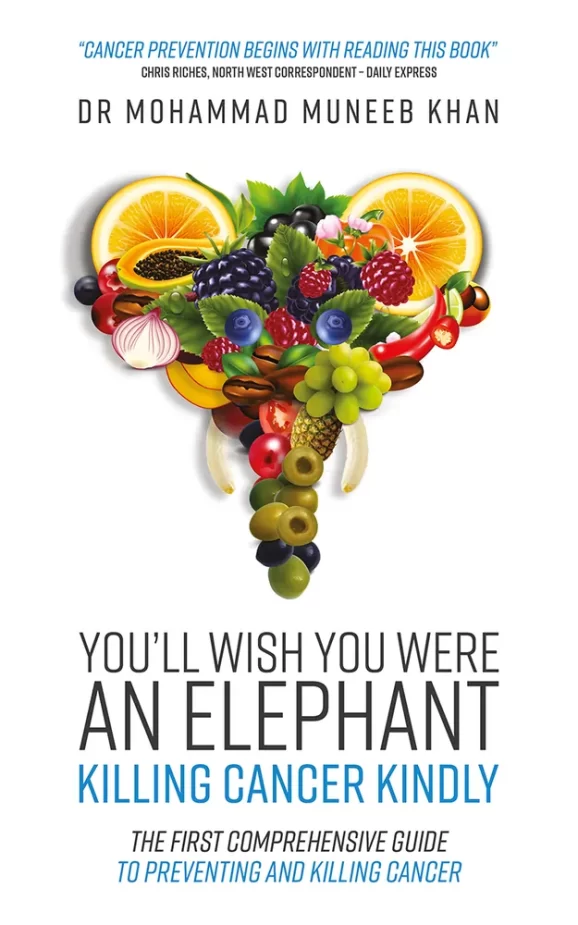
You’ll Wish You Were An Elephant (Killing Cancer Kindly) earlier this year. No book has gone further in helping reframe cancer as a more preventable, treatable, and curable disease
Continually drawing upon the latest scientific research, Killing Cancer Kindly also seeks to dispel the myths surrounding cancer, explain what the disease actually is, and show just how much each one of us can do to help avoid cancer.
Dr Khan continued: “Combating cancer in society is made more challenging by the uncertainties and misinformation surrounding it.
“Thanks to the internet we have access to vast amounts of information, but often this is presented without context, is contradictory, or is outright fake.
“A lack of understanding causes anguish and agony, especially in relation to medical matters, and a lack of wisdom prevents us from knowing what we can do to prevent cancer at different levels, not only before the onset of disease but also after it has occurred.”
Most recently, and for the same educational reason, Dr Khan has released two anti-cancer guidebooks: You’ll Wish You Were an Elephant (Killing Cancer Kindly) and The How, What & Why of Cancer: Separating Fact from Fiction.
Both books share the same comprehensive, science-backed messages and guidance as KCK, with The How, What & Why of Cancer: Separating Fact from Fiction condensing the information into a 77-page essential guide on understanding all aspects of this disease.
Having established himself as a cancer educationalist and one of the world’s leading experts on cancer prevention, Dr Khan’s vision is to establish what he calls ‘Preventative Oncology’ as a new field of medicine.
“Medicine continues to make great strides forward in detecting, diagnosing, and treating many cancers but pinning our hopes solely on breakthrough treatments is, in some ways, missing a trick.
“This ignores our body’s remarkable powers to beat cancer, and the many simple things we can do to enhance our inbuilt capability and avoid cancer-promoting habits, thereby reducing our lifetime risk of developing cancer.
“My personal dream is to establish Preventive Oncology as a new and separate entity among the medical sciences.
“Education is key to beating cancer, and my long-term mission is predicated on bringing cancer risk levels both in the UK and around the world back down from 50 per cent to less than five per cent.”
Dr Mohammad Muneeb Khan’s two books, You’ll Wish You Were an Elephant (Killing Cancer Kindly) and The How, What & Why of Cancer: Separating Fact from Fiction are available now on Amazon, in paperback, hardcover, and eBook formats. For more information about Killing Cancer Kindly, visit www.killingcancerkindly.com or follow the charity on Instagram, Twitter, Facebook or TikTok. You can also follow Dr Khan on YouTube.
Q&A Interview With Cancer Crusader Dr Mohammad Muneeb Khan
Cancer crusader Dr Mohammad Muneeb Khan, founder of the UK-based international charity Killing Cancer Kindly, tells us more about why he firmly believes the lifetime risk of cancer can be radically reduced.
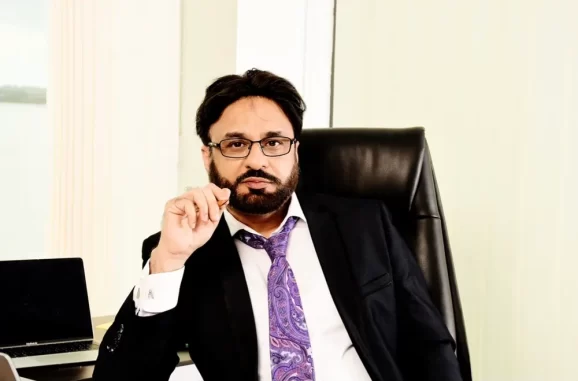
Q. In the public consciousness, cancer is probably the most feared disease. Is this fear justified?
A. There is no doubt that cancer is a dreadful disease, but with understanding it better the public will hopefully realise that there is more hope and less fear to be associated with it. Our fear of cancer is mostly a fear of the unknown. Not knowing when, why, and how cancer strikes us and what it holds for us in the future. If only people knew that their bodies have excellent anti-cancer mechanisms which can be enhanced by simple measures, they would be filled with more optimism and confidence would replace fear. It might come as a surprise to learn that every day many cancer cells are born inside us and the amazing human body kills all of them. And it does so very kindly, without any side effects or complications and hence we remain blissfully unaware of this daily win in the war against cancer. We are all curing cancer every day, effortlessly. It’s only when the body’s cancer prevention and cancer-curing mechanisms fail or are overwhelmed that a cancer cell survives. Even then it can take years or more than a decade for it to become an established disease. Hence, we still have a wide window of opportunity to detect and treat it before it becomes untreatable.
Q. Over the last few decades, the nation’s risk of developing cancer across a lifetime has increased to 50 per cent. Why is this?
A. You have touched a very sore nerve by mentioning the risk. This is one of my biggest laments in life. It’s not just the percentage but the trajectory which worries me the most. In the 1990s, lifetime risk of cancer in UK was estimated to be 25 per cent (one in four people). By the year 2000, when I started work in the NHS, it had risen to 33 per cent (one in three people). By the year 2017 it had reached 50 per cent (one in two people). Since then, I am unable to find any updated official figures but one can assume that it has either risen or remained at 50 per cent (if it would have fallen then the health authorities would have shared the good news). Some experts have projected it to rise to 60 per cent by 2030 but I won’t be surprised if it exceeds their estimation.
Only recently, the press has been carrying articles about the likelihood of a global tsunami of cancers in the next few decades, driven by demographics (elderly increase). The main reason for this increase is lifestyle factors, most of which are unknown to the public. And this is the main focus of my books — to share with everyone the multitude of cancer risks that can be easily avoided to achieve a cancer-free life.
There are three things that worry me the most about this rapid rise:
Firstly, there is no species of animals on the planet with a 50 per cent risk of any disease let alone cancer except the modern human being living in a developed society.
Secondly, our natural risk of cancer should be around five per cent or less and we have moved it swiftly, within decades, to 50 per cent.
Last but not least, there are no serious concerted efforts being made to find the causes and take action to stem this rising tide of a cancer epidemic.
So, it makes me wonder where are we heading to in the next few decades? A society with an 80–90 per cent lifetime risk of cancer? When will we wake up from this nightmarish slumber and acknowledge the elephant in the room?
Q. Does the UK Government have a greater role to play in protecting the nation against cancer?
A. Definitely. And not just a role but a serious responsibility. This becomes even more imperative when you realise that the major cause of cancer is not our genetics but environmental factors, which often get labelled as the ‘modern-day lifestyle’. Unfortunately, many of these environmental factors are not within our control. To make the situation worse, a lot of these factors are not common knowledge so people do not know how to protect themselves. The Government has the responsibility to create awareness and take steps to reduce the risk factors which are causing the rise in cancer rates.
Q. What is the biggest myth surrounding cancer?
A. The biggest myth is that cancer is inevitable because we are big animals who live long. If this was true then elephants, which are the biggest animals on land and live very long (60–80 years), should have the highest rate of cancer. But their rate is less than five per cent. The same is true for the blue whale, the largest creature in the ocean and living to more than a hundred years. The dubious honour of a 50 per cent cancer rate is exclusive to the human species and has only increased to this level over the last few decades.
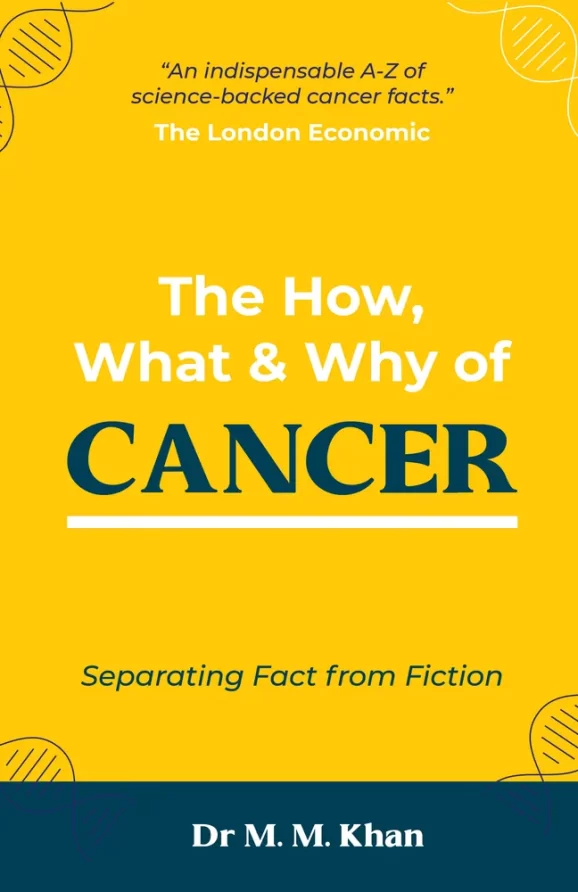
Dr Khan’s latest book, The How, What & Why of Cancer: Separating Fact from Fiction, replaces myths and misinformation with easy-to-understand and scientifically accurate knowledge
Q. Business leaders often don’t have the luxury of time to concentrate on an optimally healthy lifestyle. What one simple step can the busy executive take to immediately reduce their risk of developing cancer?
A. A heathy lifestyle is quite easy to achieve. You don’t have to do a lot. In fact, the secret is in DOING LESS, which is easy to achieve when time is a luxury. For example, having bigger gaps between meals is a very effective way to detox your body, reducing the risk of obesity and diabetes, both of which help to prevent cancer. Eating fruits and vegetables before having your breakfast, lunch, or dinner is another simple yet effective method to stay healthy. Avoid snacks and if feeling peckish have fruits, vegetables, nuts, or simply water to fill your stomach until the next meal. Intermittent exercise is better and more effective than daily rigorous and intense exercise. It allows your muscles to recover and repair between workout sessions. For more comprehensive information you are welcome to read the section of You’ll Wish You Were an Elephant (Killing Cancer Kindly) titled ‘The Khan Plan’.
Q. What is the most exciting new cancer treatment on the horizon?
A. The best and most exciting news in cancer treatment at present is immunotherapy, which helps strengthen the body’s very own anti-cancer defence system. In some trials, this approach has shown to shrink cancers (sometimes they have disappeared completely after a few months of treatment). I have a lot of faith in the human body’s ability to kill cancer and believe that the cure of cancer is within ourselves. All we need to do is enhance and strengthen this inbuilt system. This is one of the main focuses of my two books, You’ll Wish You Were an Elephant (Killing Cancer Kindly) and The How, What & Why of Cancer: Separating Fact from Fiction.
Q. Your charity and books offer a wealth of anti-cancer guidance but is this only for young, healthy people or can it apply equally to those in later life?
A. Over the last two decades or so, while working on this mission to kill cancer, I was pleasantly surprised to discover that the anti-cancer measures I was studying also help to make us stay younger, live longer, promote health, prevent disease, rejuvenate our bodies, and to some extent turn back the clocks on ageing. Following the advice on having a healthy lifestyle helps at all stages of life and even those suffering from diseases including cancer. It helps make treatment more effective, reduces the intensity of disease symptoms, and prevents it from getting worse.
Q. The Killing Cancer Kindly charity logo features an elephant. What is the significance of the animal to cancer?
A. Elephants are the biggest myth busters when it comes to cancer. Their cancer risk is one of the lowest (less than five per cent) among all animals, despite their large size and longevity (which experts have often associated with an inevitable risk of getting cancer). Most interestingly, their risk of cancer does not rise significantly when they have risk factors similar to humans (for example, alcohol consumption). My books have studied this phenomenon in detail and compared it to humans and their risk of cancer. There is a lot that we can learn in preventing, treating, and curing cancer from our mammal cousins. Hence the logo with two elephants in a yin-yang pattern and the title of my first book, You’ll Wish You Were an Elephant (Killing Cancer Kindly).
Q. How you see your charity developing over the next five to 10 years?
A. Our ultimate aim is to bring the lifetime risk of cancer down from the current high of 50 per cent to less than 5 per cent, which, according to scientific research, is the natural rate for our species. I personally believe it can actually be lowered to around one per cent. However, we are not limiting our efforts just to stemming the rising tide of cancer and preventing it but are also committed to find better treatments to control and cure cancer. These efforts also include methods of making the current treatments more effective. As part of this process, we plan to launch cancer prevention and screening campaigns across the globe. I hope, wish, and believe that our efforts in the coming five to 10 years will help make this a better, safer, and cancer-free world.
Q. In your books you suggest a new concept called the ‘Pandora Gene’ in relation to cancer development. Can you explain more?
A. Cancer is a disease of DNA damage. The medical term for this damage is a ‘mutation’. It takes many mutations to make a cancer. I believe that there is one particular gene that, when mutated, leads to the cascade of DNA damage which culminates in a cancer. Think of it as the safety lock on a gun which once deactivated enables it to fire the bullet. While the lock is on, loading the gun and trying to squeeze the trigger is dangerous but not deadly. Decades of research is pointing to this one specific gene, TP53, which I call the ‘Pandora gene’. It is a tumour suppressor gene. Damage to it lifts the lid on cancers, just like the legendary Pandora did by lifting the lid on a jar full of diseases and sufferings — setting them free to inflict the world. This gene and its pathway can play a pivotal role in the detection, treatment, and cure of cancer. Our team at Killing Cancer Kindly has plans to design trials to further research this gene in particular.
RECENT ARTICLES
-
 Afore SURA awarded Pension Fund Management Company of the Year 2025
Afore SURA awarded Pension Fund Management Company of the Year 2025 -
 BOV Fund Services Limited wins in The European Banking & Finance Awards 2024
BOV Fund Services Limited wins in The European Banking & Finance Awards 2024 -
 Amberdata wins two titles in The European Banking & Finance Awards 2024
Amberdata wins two titles in The European Banking & Finance Awards 2024 -
 Ajman Bank wins in The European Banking & Finance Awards 2024
Ajman Bank wins in The European Banking & Finance Awards 2024 -
 Creditú wins three titles at The European Banking & Finance Awards 2024
Creditú wins three titles at The European Banking & Finance Awards 2024 -
 Krungthai Bank PCL wins five awards in The European Banking & Finance Awards 2024
Krungthai Bank PCL wins five awards in The European Banking & Finance Awards 2024 -
 Oakridge Property Group wins at The European Global Business Awards 2024
Oakridge Property Group wins at The European Global Business Awards 2024 -
 Old Mutual Investment Group wins two titles at The European Global Banking & Finance Awards 2024
Old Mutual Investment Group wins two titles at The European Global Banking & Finance Awards 2024 -
 AXA IM Select wins at The European Global Banking & Finance Awards 2024
AXA IM Select wins at The European Global Banking & Finance Awards 2024 -
 Zenith Bank Ghana wins five titles at The European Banking & Finance Awards 2024
Zenith Bank Ghana wins five titles at The European Banking & Finance Awards 2024 -
 SeABank awarded The Risk Management Bank of the Year - Vietnam 2024
SeABank awarded The Risk Management Bank of the Year - Vietnam 2024 -
 Vista Land & Lifescapes Inc. wins three titles at The European Global Business Awards 2024
Vista Land & Lifescapes Inc. wins three titles at The European Global Business Awards 2024 -
 Boursa Kuwait wins two titles at The European Global Sustainability & ESG Awards 2024
Boursa Kuwait wins two titles at The European Global Sustainability & ESG Awards 2024 -
 Gulf African Bank wins four titles at The European Banking & Finance Awards 2024
Gulf African Bank wins four titles at The European Banking & Finance Awards 2024 -
 Gulf Insurance Group awarded two Global Banking & Finance titles for 2024
Gulf Insurance Group awarded two Global Banking & Finance titles for 2024 -
 Eccelsa Aviation awarded three Global Business 2024 titles, including Best FBO Brand – Europe
Eccelsa Aviation awarded three Global Business 2024 titles, including Best FBO Brand – Europe -
 Afore Sura awarded Pension Fund Management Company of the Year 2024
Afore Sura awarded Pension Fund Management Company of the Year 2024 -
 Toledo Capital AG wins Best Boutique Wealth Management - Family Office 2024
Toledo Capital AG wins Best Boutique Wealth Management - Family Office 2024 -
 Banco de Chile awarded four Global Banking & Finance 2024 titles, including Bank of the Year - Chile
Banco de Chile awarded four Global Banking & Finance 2024 titles, including Bank of the Year - Chile -
 Kontora Family Office GmbH awarded Best Wealth Management Services - Germany 2024
Kontora Family Office GmbH awarded Best Wealth Management Services - Germany 2024 -
 Banque Misr awarded five Global Banking & Finance 2024 titles, including Best Banking Brand - MENA
Banque Misr awarded five Global Banking & Finance 2024 titles, including Best Banking Brand - MENA -
 Krungthai Bank PLC wins five awards in The European Banking & Finance Awards 2023
Krungthai Bank PLC wins five awards in The European Banking & Finance Awards 2023


